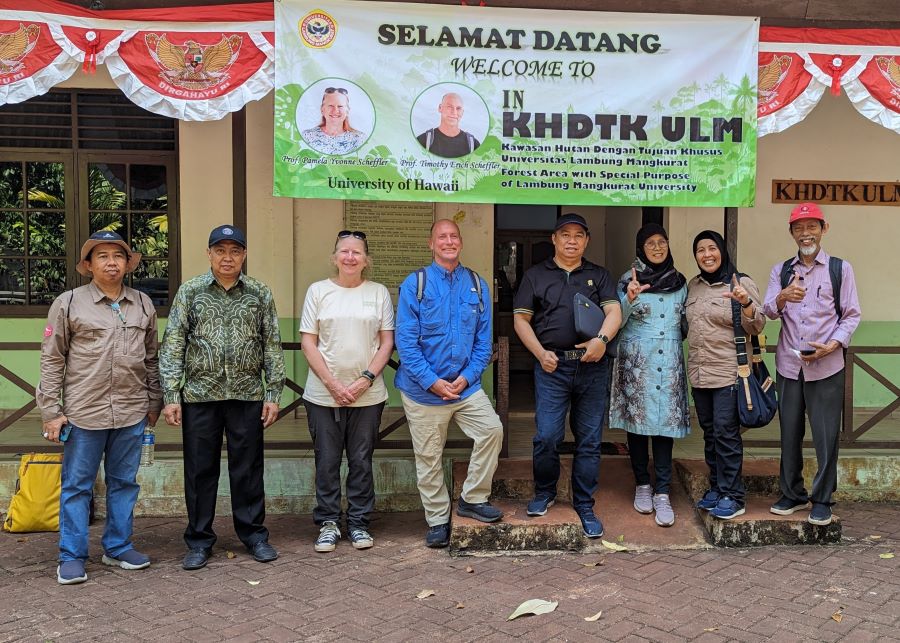Environmental scientist brings the world to community college students
Pamela Scheffler
Ecologist and Community College Professor
Fulbright Scholar to India and Indonesia
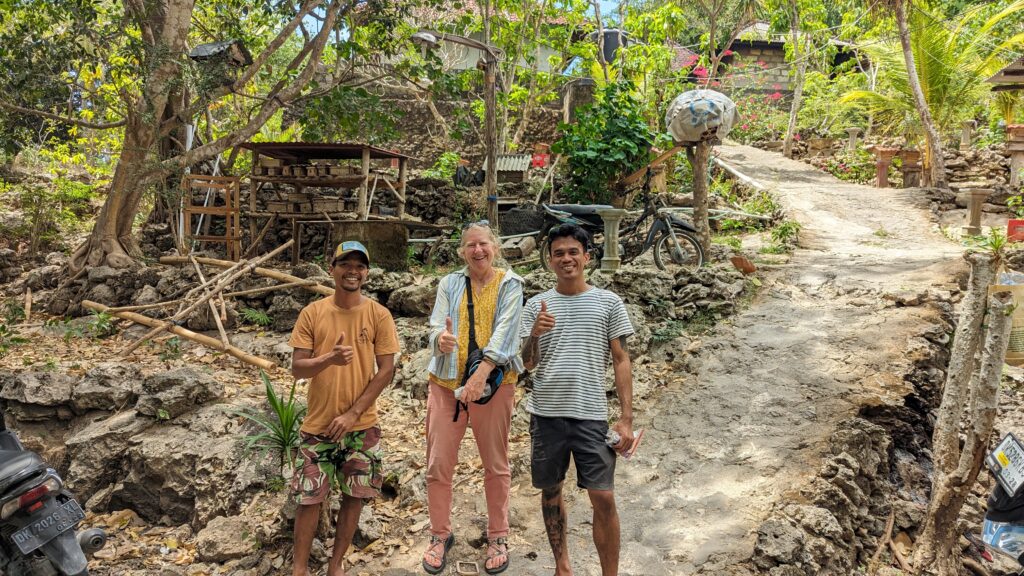
Dr. Pamela Scheffler is an expert on human interaction with the environment and a faculty member at Hawaii Community College, where she is a professor of geography, biology, and environmental science.
Scheffler began her career researching dung beetle ecology in Brazil as a graduate student, serving as a Peace Corps volunteer in Guatemala, and conducting vegetation surveys for archaeology projects in Mexico and Honduras. After completing her doctorate, her first Fulbright brought her to India to research small farmer agroforestry systems.
Her research in India brought her to remote hill villages to interview local farmers and meet their families, where she “ended up drinking a lot of coconut water and tea in a lot of houses.” She says this opportunity to form personal connections through her research was a highlight of her Fulbright-- along with hiking to a forest cattle camp and hearing the trumpeting of elephants. It also helped her reach international audiences with her research findings. While in India, she delivered the inaugural address at the National Conference on Impact of Climate Change on Biodiversity in Tamil Nadu.
Her two Fulbright U.S. Scholar awards, first in India and then a decade later to Indonesia, have allowed her to collaborate with international academics, farmers, and ecologists and environmental experts. She says that bringing their perspectives on the environment are the “pieces of her Fulbright experience” she takes back into all of her classes, which has an “impact on a really diverse set of students.”
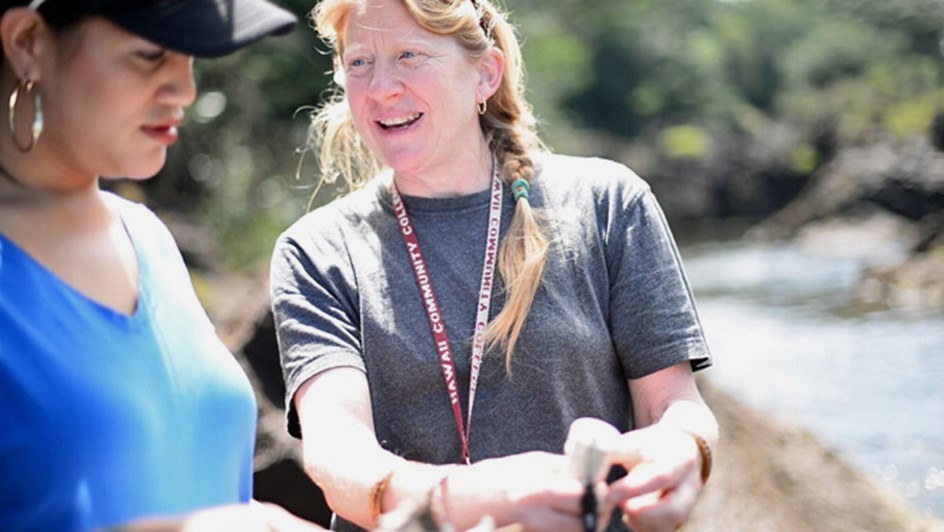
Now, as a faculty member at Hawaii Community College, Scheffler teaches a wide variety of classes for students in the liberal arts and natural sciences, with a focus on tropical forest ecosystem and agroforestry management programs. Her course on the environment and ecology explores the effect of human activity and teaches students to employ critical thinking when looking at environmental issues locally and globally. She is widely known for her teaching and research in tropical ecosystems and agroforestry management.
She incorporates photographs and observations from her Fulbright awards, exciting her students about complex biogeographical concepts. She explains that her Fulbright experience enables her to talk first-hand about the incredible contribution of the Indonesian archipelago to our understanding of evolution. For example, she draws on her visit to the “Wallace Line”—Alfred Russel Wallace’s discovery of the differences in the flora and fauna in the eastern and western part of the Indonesian archipelago—to explain how research on the archipelago shapes contemporary understandings of evolution.
As a member of the International Education Committee at Hawaii Community College, Scheffler works on many levels to bring global culture and knowledge to her students. She has led study abroad programs to Honduras and Ireland, and contributes to internationalizing the curriculum. This work is driven by a belief that “an understanding of the world and its multitude of cultures and ecosystems is a requirement” of understanding “any individual part” of our world. Scheffler makes her students aware that ”the interconnectedness of these systems cannot be overemphasized.”
Scheffler’s most recent Fulbright was particularly rewarding because it stemmed from an Indonesian Fulbright scholar’s lecture to Hawaii Community College students through Fulbright’s Outreach Lecturing Fund. More than five years after Hawaii Community College hosted the lecture, the visiting scholar invited Scheffler to come to Bali as an ecologist to work with small farmers on incorporating native stingless bees into their agricultural system.
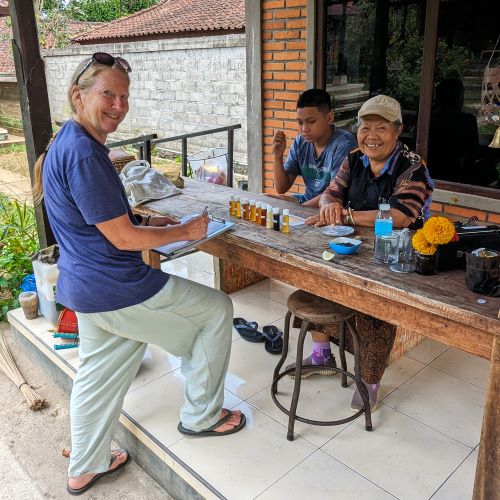
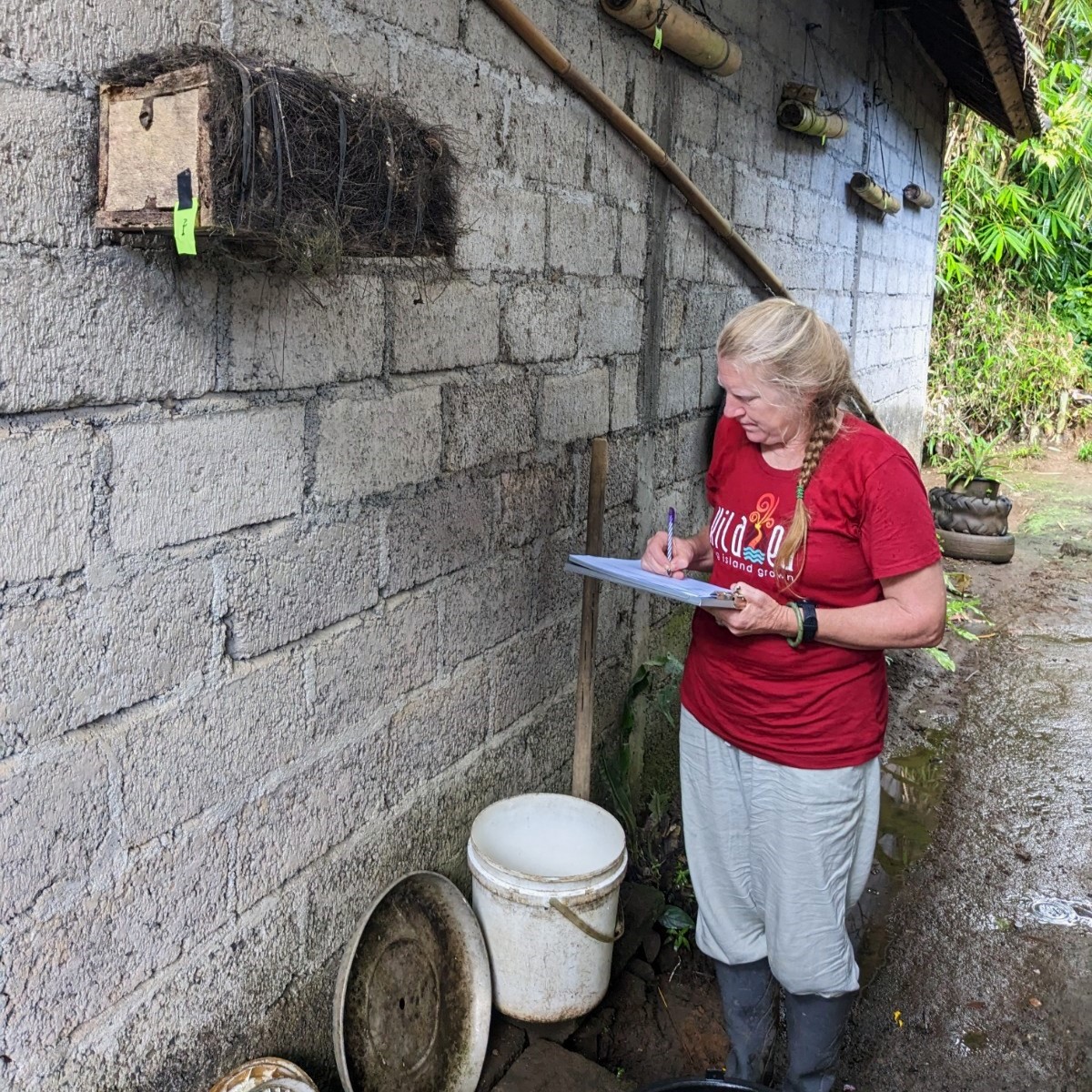
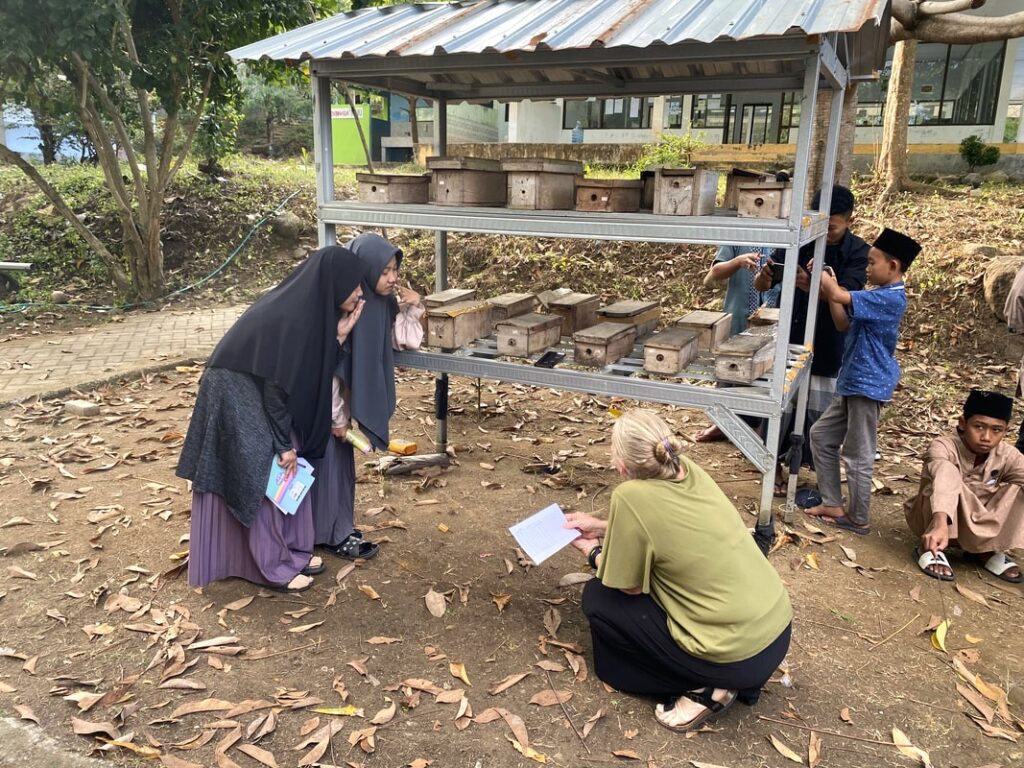
This collaboration culminated in an eight month visit to upslope areas of the island to work with Universitas Udayana faculty. Together, they studied the ecology of native bees in small-scale agricultural holdings. She conducted research on Trigona honey, which is rich in flavonoids and other phyto-active chemicals, and is used like a medicine in Bali. After recording several months of activity data from local hives, she participated in the local honey harvest and organized several honey tastings to record the differences among the types of honey. One of her projects involved sending honey samples to two professors from Universitas Teknologi Sumbawa (UTS) who analyzed them to measure pollen and nutraceutical content. She spoke about the bee project at UTS and at a forestry conference at Universitas Lambung Mangkurat (ULM), where she visited the ULM teaching forest. She also gave the plenary address at the International Conference on Applied Science and Technology in Jakarta.
After her return from Indonesia, Scheffler says she is looking forward to teaching about novel techniques in her agroforesty class, in which students learn to design mixed forestry and agricultural systems combining long term tree crops with understory plants suited to the region’s climate zone and economic goals. She says, “I love when I see students really making connections between the islands of Hawaii and Indonesia and realizing that the world is not such a big place after all.”
She has begun talks with Hawaii Community College administration and her host contacts about conducting a short-term faculty-led study abroad program to Indonesia. Scheffler’s efforts as a Fulbright Scholar Liaison have contributed to Hawaii Community College being named a Fulbright Top Producing Institution. As both a returned Fulbrighter and as the campus liaison to the Fulbright Scholar Program, she helps other faculty members plan for their own Fulbrights, helping them map out both their research objectives and living situations. She is hopeful that this will lead to more faculty “starting to think of themselves as potential Fulbrighters” and to begin “to envision living abroad, working with new cultures, and making new friends, colleagues and contacts.”
